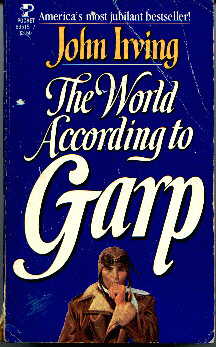The 1970s and 1980s: New directions
By the mid-1970s, an era of consolidation began. The Vietnam conflict was over, followed soon afterward by U.S. recognition of the People's Republic of China and America's Bicentennial celebration. Soon the 1980s -- the "Me Decade" -- ensued, in which individuals tended to focus more on more personal concerns than on larger social issues. In literature, old currents remained, but the force behind pure
experimentation dwindled. New novelists like John Gardner, John
Irving (The World According to Garp, 1978), Paul Theroux
(The
Mosquito Coast, 1982), William Kennedy (Ironweed,
1983), and
Alice Walker (The Color Purple, 1982) surfaced with
stylistically
brilliant novels to portray moving human dramas. Concern with
setting, character, and themes associated with realism returned.
Realism, abandoned by experimental writers in the 1960s, also
crept back, often mingled with bold original elements a daring
structure like a novel within a novel, as in John Gardner's
October Light (1976) or black American dialect as in Alice
Walker's The Color Purple. Minority literature began to
flourish.
Drama shifted from realism to more cinematic, kinetic techniques.
At the same time, however, the "Me Decade" was reflected in such
brash new talents as Jay McInerny (Bright Lights, Big
City,
1984), Bret Easton Ellis (Less Than Zero, 1985), and Tama
Janowitz (Slaves of New York, 1986).
In literature, old currents remained, but the force behind pure
experimentation dwindled. New novelists like John Gardner, John
Irving (The World According to Garp, 1978), Paul Theroux
(The
Mosquito Coast, 1982), William Kennedy (Ironweed,
1983), and
Alice Walker (The Color Purple, 1982) surfaced with
stylistically
brilliant novels to portray moving human dramas. Concern with
setting, character, and themes associated with realism returned.
Realism, abandoned by experimental writers in the 1960s, also
crept back, often mingled with bold original elements a daring
structure like a novel within a novel, as in John Gardner's
October Light (1976) or black American dialect as in Alice
Walker's The Color Purple. Minority literature began to
flourish.
Drama shifted from realism to more cinematic, kinetic techniques.
At the same time, however, the "Me Decade" was reflected in such
brash new talents as Jay McInerny (Bright Lights, Big
City,
1984), Bret Easton Ellis (Less Than Zero, 1985), and Tama
Janowitz (Slaves of New York, 1986).
The close of the 1980s and the beginnings of the 1990s saw minority writing become a major fixture on the American literary landscape. This is true in drama as well as in prose. August Wilson who is continuing to write and see staged his cycle of plays about the 20th-century black experience (including Pulitzer Prize-winners Fences, 1986, and The Piano Lesson, 1989) -- stands alongside novelists Alice Walker, John Edgar Wideman, and Toni Morrison.
Asian-Americans are also taking their place on the scene. Maxine Hong Kingston (The Woman Warrior, 1976) carved out a place for her fellow Asian-Americans, among them Amy Tan, whose luminous novels of Chinese life transposed to post-World War II America (The Joy Luck Club, 1989, and The Kitchen God's Wife, 1991) have captivated readers. David Henry Hwang, a California- born son of Chinese immigrants, has made his mark in drama, with plays such as F.O.B. (1981) and M. Butterfly (1986).
A relatively new group on the literary horizon are the Hispanic-American writers, including the Pulitzer Prize-winning novelist Oscar Hijuelos, the Cuban-born author of The Mambo Kings Play Songs of Love (1989); short story writer Sandra Cisneros (Women Hollering Creek and Other Stories, 1991); and Rudolfo Anaya, author of Bless Me, Ultima (1972), which sold 300,000 copies, mostly in the western United States.
